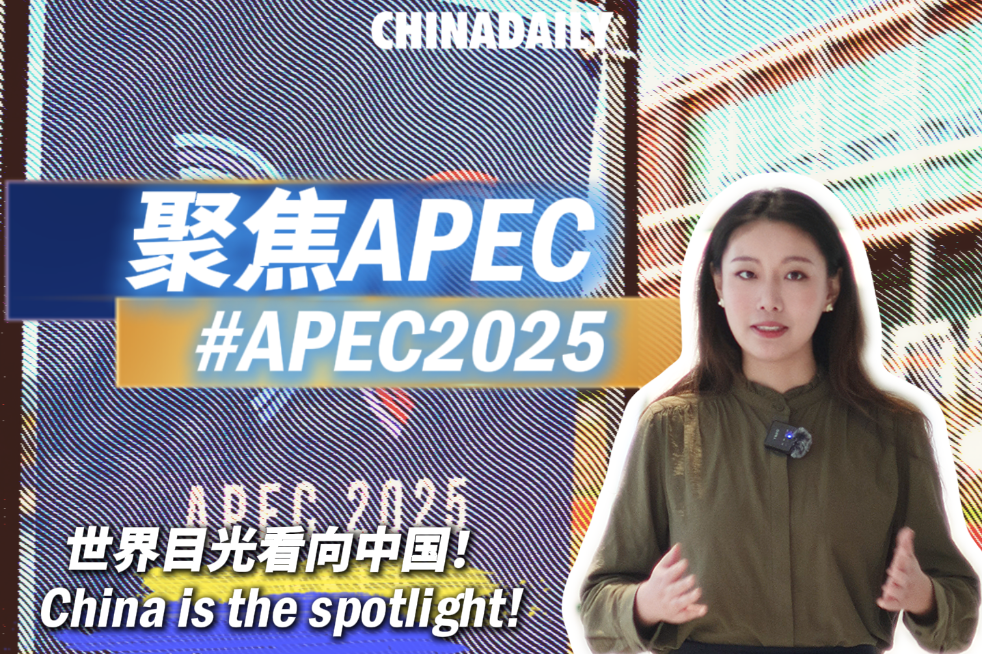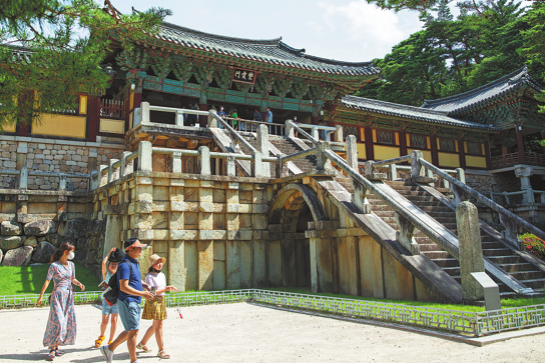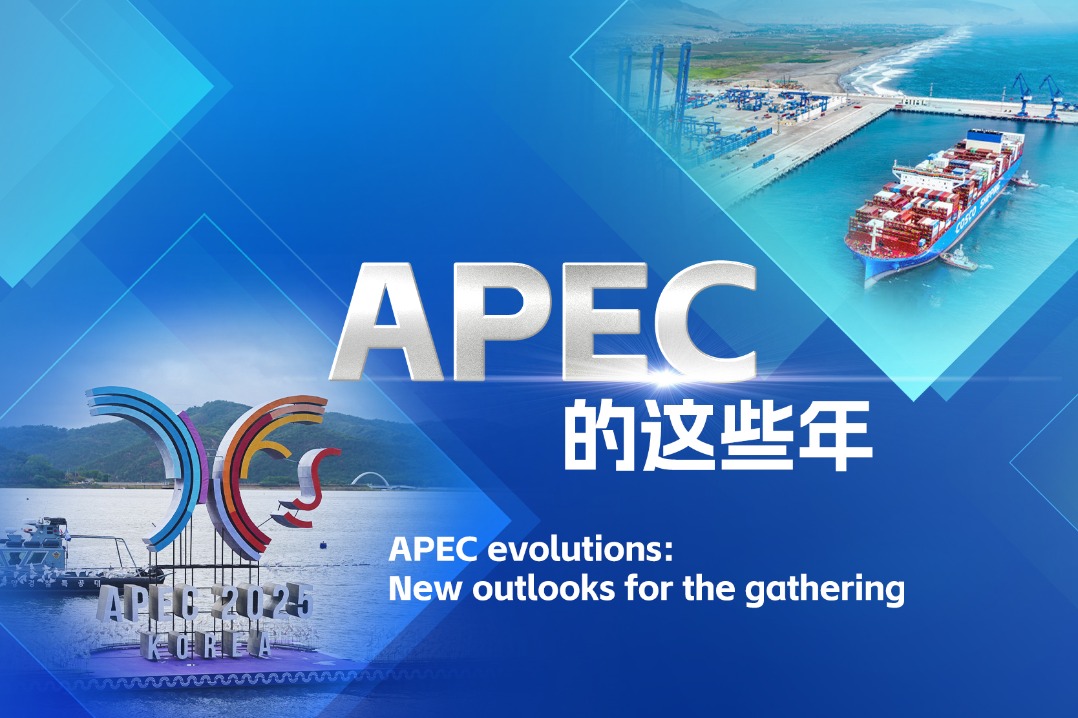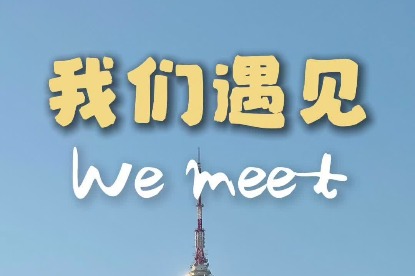Stabilized, warmer ties would bode well for China, EU

The China-European Union Summit in December was a milestone in stabilizing and warming China-EU relations. After a four-year hiatus, the offline summit was held for the first time, and Chinese and European leaders recalibrated bilateral relations, guiding the future development of the relationship.
During the new year, the continuously stabilizing and warming China-EU relations bring many new highlights.
In the economic sphere, whether the cornerstone role of economic and trade relations in China-EU relations can remain stable has attracted much attention. Under the combined influence of factors such as the COVID-19 pandemic, the Russia-Ukraine conflict and the energy crisis in Europe, China's imports and exports to the EU in the first three quarters, when measured in renminbi, decreased 1.5 percent year-on-year, with exports dropping 4.6 percent year-on-year.
After years of sustained growth, China-EU trade seems to have encountered headwinds. At the same time, trade frictions between China and the EU are on the rise. If China-EU economic and trade relations are to return to a growth trajectory in 2024, they will need more impetus.
On the one hand, as the Chinese economy gradually overcomes its difficulties, and the EU economy slowly recovers amid challenges, the conditions for a warming of China-EU economic and trade relations have improved. Calls within the EU for decoupling from China have gradually diminished, which is favorable for the stability of China-EU economic and trade relations.
On the other hand, the EU's economic recovery is slow, and in the new year, it still faces many lingering issues, including how to withdraw in an orderly manner the tight monetary and relief policies adopted to address high inflation, and how to reduce high government debt and deficits.
Amid tense geopolitical situations such as the Ukraine crisis and the Palestinian-Israeli conflict, Europe also needs to guard against the resurgence of an energy crisis. As for the bilateral economic and trade relations between China and the EU, the EU's "de-risking" policy continues to advance, and the implementation of tools such as the EU's Foreign Subsidy Regulations and Anti-Coercion Instrument may also pose obstacles to China-EU economic and trade relations.
In the political arena, whether bilateral mutual trust can be effectively rebuilt and strengthened remains to be tested. With the thawing of US-China relations in 2023 and the gradual resumption of offline dialogues in several bilateral mechanisms between China and the EU, European Union leaders, several European commissioners, and leaders of major EU member states have visited China, making the internal and external foundation for political mutual trust between China and the EU more stable than in the previous period.
However, in 2024, the European Union will hold elections for the European Parliament and undergo a change in the leadership of EU institutions. There are also concerns about the stability of major country politics internally, as well as uncertainties such as the US presidential election externally, that will test the stability of policies regarding China.
In such a complex internal and external environment, it is especially important to have strategic thinking and steadfast beliefs among the main European leaders. Additionally, 2024 coincides with the 60th anniversary of the establishment of diplomatic relations between China and France, and the close interaction between the two major countries may inject more stability into China-EU relations.
In the coming year, whether the EU can bridge the increasingly prominent "new versus old Europe" contradictions, resolve North-South financial issues, and withstand the surge of internal populism and the strategic impulses in external relations will also affect the autonomy and stability of the EU's policies related to China.
In the field of people-to-people exchanges, it is worth looking forward to further progress in bilateral cooperation across multiple areas. With the receding of the pandemic, personnel exchanges and existing collaborations between China and Europe are gradually being restored. China has implemented a visa-free policy for the five major European countries and reduced visa fees for others for travel to China, providing convenience for cultural exchanges between China and Europe. The sixth meeting of the China-EU High-Level People-to-People Dialogue mechanism is also expected to guide cultural exchanges between China and Europe. In 2024, cultural and tourism exchanges, such as the China-France Culture and Tourism Year, are equally eye-catching.
Furthermore, there are still many cooperation opportunities between China and the EU. In areas such as supply chain stability, climate change, digital economy and public health, China and Europe have already reached a consensus on cooperation, and the results in areas such as third-party market cooperation can be further expanded.
With the support of the China-EU High-Level Environment and Climate Dialogue and the High-Level Digital Dialogue, the China-EU green partnership and digital cooperation partnership can be further deepened. In the field of infrastructure construction, there is great potential for alignment between the Belt and Road Initiative and the EU's Global Gateway.
To promote the continued warming of China-EU relations and realize the potential for cooperation, the EU and China must move toward each other. Faced with the concerns of both sides, avoiding a value-driven approach and adhering to dialogue are more helpful in resolving obstacles. For Europe, which is facing economic recovery pressure and geopolitical shadows, it is not wise to generalize "de-risking" and unilaterally reduce its so-called "economic dependence" on China.
Building a stable and healthy bilateral relationship is strategically significant for both China and the EU, as well as for the world. From a political perspective, 2024 will undoubtedly be a year of turbulence, which will require concerted efforts from China and the EU to jointly address complex challenges.
Ding Chun is director of the Centre for European Studies and the Jean Monnet Chair at Fudan University. Ji Haonan is a research assistant at the Centre for European Studies. The views do not necessarily reflect those of China Daily.

































